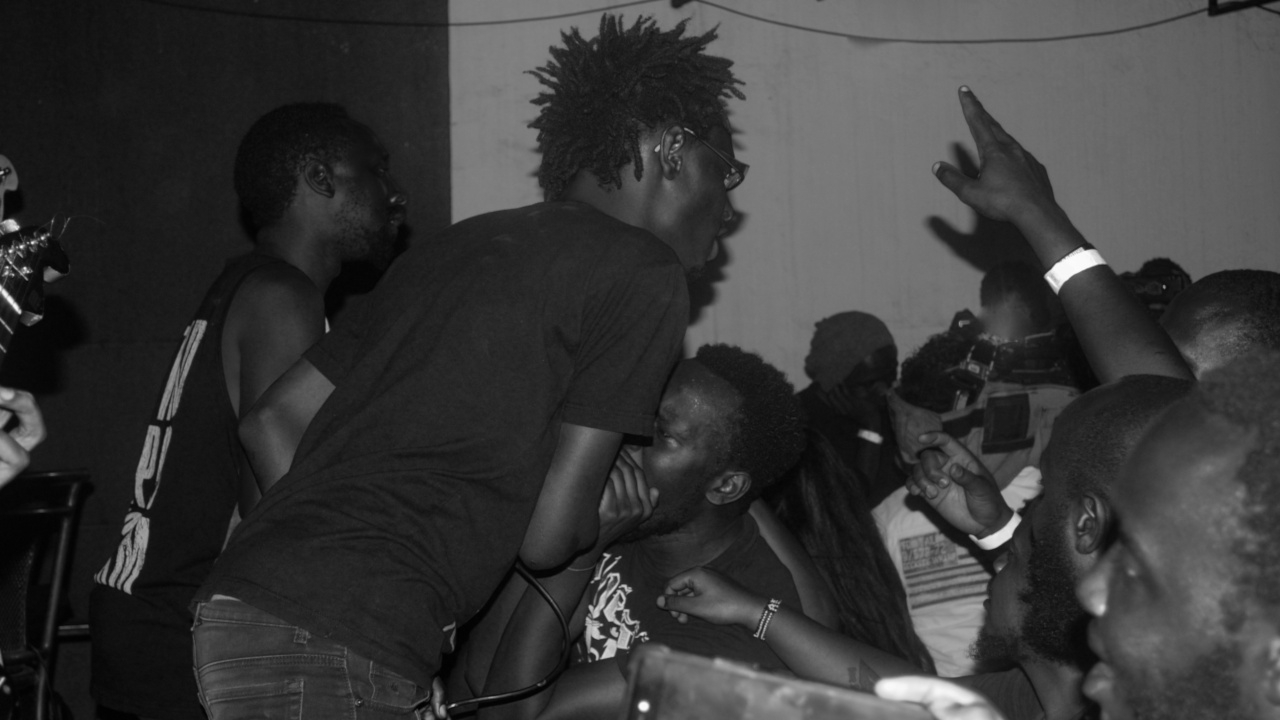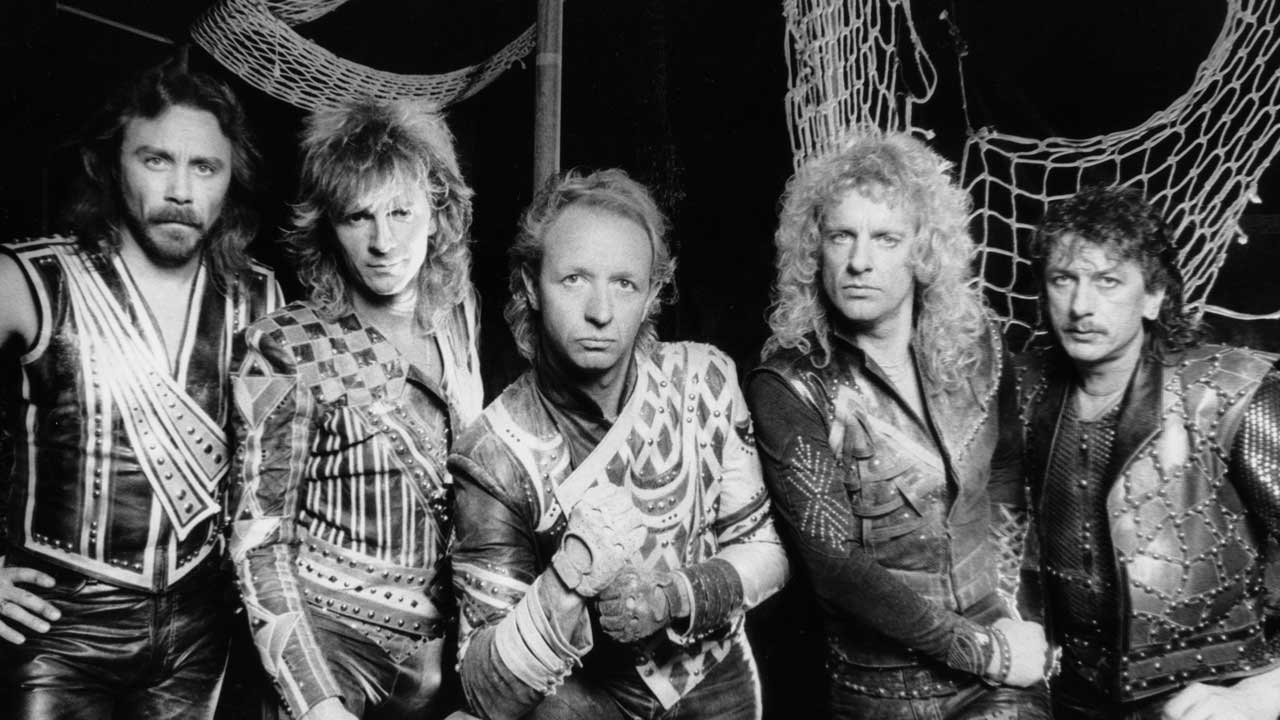"We’re finding something completely new": why Africa is the future of metal
Author Edward Banchs' new book introduces the metal bands reshaping the genre and giving it a brighter future

When author Edward Banchs released Heavy Metal Africa in 2016, he hoped it would help shine a spotlight on the metal scenes in, well, Africa. Based around his experiences travelling in countries including Botswana, South Africa, Kenya, Madagascar and Mauritius, he saw it as a way of highlighting a branch of ‘global metal’ that was being overlooked.
Only, the reception to it wasn’t quite what he had hoped. “People saw African metal as a novelty,” he says with a frustrated sigh. “They completely missed that these were deep-rooted scenes of passionate metal fans.”
Six years on, Edward has returned to the subject for a sort-of sequel. Titled Scream For Me Africa!, his new book is no longer about just pointing out the existence of African metal bands, but exploring the ways that individual bands are refining heavy metal.
Chronicling his experiences spending time with bands from five countries – Botswana, Togo, South Africa, Kenya and Ghana – the book explores how they're using heavy metal to discuss everything from cultural ancestry to economic hardships and decolonial narratives.
“Instead of giving a loose history, I wanted a stronger dialogue around African metal as a whole,” Edward explains. “This time I was focusing on the lyrics that these bands were writing, and it was an open door to realising there’s this whole generation that has nothing to do with the colonial aspect of their lives but are still scarred by what colonialism did to them. In that sense, the music was a pushback. The word that comes up in certain circles of metal now is ‘de-colonialism’.”
This theme is prevalent from the first band featured, Arka’n Asrafokor. Dubbed “the only heavy metal band in Togo”, they fuse tight groove metal with traditional African instruments and rhythms, exploring aspects of their Ewe culture. But as they see it, the music also has direct ties with African heritage as a whole.
“When I first listened to metal, it allowed me to communicate with my inner personality,” explains Arka’n singer and guitarist, Rock Ahavi. “Everyone knows metal comes from hard rock, which comes from rock, which comes from blues. Blues was our ancestors’ music – I can feel the connection with all of this music and when I listen to metal, I know it’s a part of me and who I should be. African culture influences everything we do; think of the way I speak. I don’t speak English with an American or British accent, because I am African so have an African accent. So when we play rock and metal, it’s the same – we still express that with our own accents because that is our culture.”
Sign up below to get the latest from Metal Hammer, plus exclusive special offers, direct to your inbox!
Rather than any one homogenised scene, Edward’s book highlights the diversity in not only the sounds of each band, but the issues they face. While Arka’n Asrafokor have a strong focus on environmental issues (“Humanity is losing its way. Arka’n are telling them to come back to the right place: to stop neglecting life itself,” Rock explains), bands like Ghanian rockers Dark Suburb explore the realities of life in slums. Another chapter explores how South Africa’s apartheid history affected its metal community.
“I didn’t realise how much of an authoritarian state [apartheid-era] South Africa was,” the author admits. “The church and police department were synched, and metal shows were getting raided. Even putting on a metal show was a criminal act. Fans were arrested: they’d get thrown into the back of vans and have their hair forcibly cut.”
But for all the obstacles African bands face, Edward feels metal is the perfect vehicle for them to confront complex social and political issues. “No matter where it comes from, metal tends to be a confrontation of societal issues,” he says. “It allows you to confront the norms you face not only in society, but your personal norms. Metal creates a safe space for difference, and I think that’s why a lot of African musicians have been attracted to it. They’re sending out this message that is, ‘Stop seeing us as exotic animals; we’re just like you and have the same passions, goals and dreams that you do.’”
While Africa is still criminally overlooked in the metal world, its bands and musicians are steadily emerging into the spotlight. Whether it is Kenyan duo Duma offering a fascinating mix of grindcore and industrial, or Zambian-born musician Backxwash pioneering trap metal, African musicians are creating exciting new sounds and directions for heavy metal to explore. The way Rock sees it, that’s par for the course.
“Africa is the future of metal,” the musician declares. “It’s the only continent that hasn’t been discovered yet from a metal perspective. For me, lots of bands in the West are doing the same things – death metal, metalcore and so on – but in Africa we’re finding something completely new.”
Scream For Me Africa is out now.
Staff writer for Metal Hammer, Rich has never met a feature he didn't fancy, which is just as well when it comes to covering everything rock, punk and metal for both print and online, be it legendary events like Rock In Rio or Clash Of The Titans or seeking out exciting new bands like Nine Treasures, Jinjer and Sleep Token.
- Matt MillsOnline Editor, Metal Hammer

